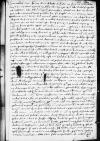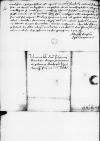Licet tu exsistas rarus in scribendo, tamen ego, qui tibi dudum singulariter afficior tibi scribere numquam gravabor.
Scias me hic in Gdańsk (Danzig, Dantiscum), city in northern Poland, on the Bay of Gdańsk at the mouth of the Vistula, on the Baltic, the biggest and wealthiest of the three Great Prussian Cities (Gdańsk, Thorn (Toruń), and Elbing (Elbląg)) with representation in the Council of Royal Prussia; a member of the Hanseatic League⌊domo tuaGdańsk (Danzig, Dantiscum), city in northern Poland, on the Bay of Gdańsk at the mouth of the Vistula, on the Baltic, the biggest and wealthiest of the three Great Prussian Cities (Gdańsk, Thorn (Toruń), and Elbing (Elbląg)) with representation in the Council of Royal Prussia; a member of the Hanseatic League⌋ esse et vices tuas, quam diu hic sum, supplere cum tuo commendario Urbanus Ulrici (Urbanus Ulrich) (†1543/1544), 1499-1503 studied in Rostock, promoted magister artium; Before 1530 - temporary administrator (commendarius) of the parish of the Blessed Virgin Mary's Church in Gdańsk (Ger. Danzig); 1526 - Gdańsk judicial vicar of Włocławek bishop and parish priest of St Barbara's Church in Gdańsk; 1536 - parish priest of the Church of Blessed Virgin Mary in Gdańsk. (AT, XII, 132, 149; XIV, 803; XV, 4-5, 34, 217; XVIII, 218, 408; RAG, Repertorium Academicum Germanicum. URL: http://www.rag-online.org/gelehrter/id/-1841810725)⌊UrbanoUrbanus Ulrici (Urbanus Ulrich) (†1543/1544), 1499-1503 studied in Rostock, promoted magister artium; Before 1530 - temporary administrator (commendarius) of the parish of the Blessed Virgin Mary's Church in Gdańsk (Ger. Danzig); 1526 - Gdańsk judicial vicar of Włocławek bishop and parish priest of St Barbara's Church in Gdańsk; 1536 - parish priest of the Church of Blessed Virgin Mary in Gdańsk. (AT, XII, 132, 149; XIV, 803; XV, 4-5, 34, 217; XVIII, 218, 408; RAG, Repertorium Academicum Germanicum. URL: http://www.rag-online.org/gelehrter/id/-1841810725)⌋, viro bono, sed revera esset necessarium, ut aliquando huc ad aliquot dies venires, nam a multis desideraris probis. Johann von Höfen (Johannes Flachsbinder) (†1528), father of Ioannes Dantiscus⌊PaterJohann von Höfen (Johannes Flachsbinder) (†1528), father of Ioannes Dantiscus⌋ tuus, Simeon senex, hic mecum est, bonus senex et politus cupitque, ut omnia in bono statu essent ad urbem et ecclesiam pertinentia, sed etiam nonnihil passus est calamitatis, tunc quando tumultus, dum in dote tua essem, adversus me motus fuerit a plebe vili. Detinueram enim unum pseudosacerdotem ortum ex Pomerania⌊PomeraniaPomerania⌋, in praesentia mea publice haeresim profitentem et temerarie docentem, et servavi eum per noctem domi in cellario volens adveniente reverendissimo domino Jan Łaski (Ioannes de Lasco) (*1456 – †1531), 1503-1513 Grand Chancellor of the Kingdom of Poland, 1510-1531 Archbishop of Gniezno and Primate of Poland (PSB 18, p. 229-237 ; TAFIŁOWSKI 2007)⌊archiepiscopoJan Łaski (Ioannes de Lasco) (*1456 – †1531), 1503-1513 Grand Chancellor of the Kingdom of Poland, 1510-1531 Archbishop of Gniezno and Primate of Poland (PSB 18, p. 229-237 ; TAFIŁOWSKI 2007)⌋ de eodem disponere, quod aequitas suasisset. Mane autem donec missam legerem tumultus ortus est nonnullis laicis eiusdem sectae Luterianae tutoribus et nonnullis sacerdotibus et religiosis instigantibus. Et dum exivissem ecclesiam comitatus proconsulibus, quibus eum sacerdotem haereticum in manus dederam, ecce ille tumultus venit ad postes domus et vi conabatur postes effringere clamore magno edito. Mei tamen prohibuere ostii effractionem et interim sacerdos ille, quem detinueram, exivit. Et ita motus cessavit. Ambrosius scriba tunc erat in dote, pauper adeo fuit deterritus, quod vix spirare potuerit.
Ecce Citizens of Gdańsk ⌊tuorum gentiliumCitizens of Gdańsk ⌋ religiositas, nihil itaque proficere potui una cum reverendissimo domino Jan Łaski (Ioannes de Lasco) (*1456 – †1531), 1503-1513 Grand Chancellor of the Kingdom of Poland, 1510-1531 Archbishop of Gniezno and Primate of Poland (PSB 18, p. 229-237 ; TAFIŁOWSKI 2007)⌊archiepiscopoJan Łaski (Ioannes de Lasco) (*1456 – †1531), 1503-1513 Grand Chancellor of the Kingdom of Poland, 1510-1531 Archbishop of Gniezno and Primate of Poland (PSB 18, p. 229-237 ; TAFIŁOWSKI 2007)⌋ in emendanda religione, et in emendandis pseudosacerdotibus et religiosis et vereor, quod post nostrum abitum res in deterius cedent, tu non multo offertorio gaudebis.
Ego magna commoditate usus sum, tuam domum inhabitans. Decrevi igitur et tribunal meum hinc auferre et alibi locare, nam nec officialis tutus est, et sacerdotes probi, quibus notio apud me era{n}t, nonnisi more Nicodemi propter metum ad me veniebant. Domini Gdanenses cupiunt, ut parochi cum eis maneant, et ubi non manserint, timent haeresim alas suas latius expansuram. Vescuntur multi carnibus et butyro, omnia in fide et non in operibus constituta esse credentes ad salutem. Orator ducis Megapolensis doctor senex, qui hic fuit, dicit se fuisse magistrum Martin Luther (Martinus Lutherus) (*1483 – †1546), theologian, leader and originator of the German Reformation⌊LuteriMartin Luther (Martinus Lutherus) (*1483 – †1546), theologian, leader and originator of the German Reformation⌋, quem a puero improbissimum novit et lenonem fuisse profitetur neque habere litteras ad doctrinam sufficientes, sed eum habere dicit quosdam litteratos, qui ipsi plus confingunt, quam ipse et adornant. Idem doctor dixit ante annum ipsum convenisse et vidisse et allocutum fuisse perquirendo, quomodo in errorem incidisset. Cui Martin Luther (Martinus Lutherus) (*1483 – †1546), theologian, leader and originator of the German Reformation⌊QuiMartin Luther (Martinus Lutherus) (*1483 – †1546), theologian, leader and originator of the German Reformation⌋ sibi respondisset se nescire, quomodo
 BCz, 249, p. 68
incidisset, sed professus est, quod in nomine diaboli ordinem suscepisset et iterum reliquisset et postea iterum reassu<m>psisset et quod intelligat se male facere velleque libenter desistere, sed nequaquam se posse, unde est, quod conicio, ipsum spiritu maligno esse occupatum, quod sui non sit compos. Et idem spiritus malignus non quiescit discurrens alios inficiendo, dominium Albrecht I von Hohenzollern-Ansbach (Albrecht von Brandenburg) (*1490 – †1568), 1511-1525 Grand Master of the Teutonic Order; from 1525 to his death Duke in Prussia as a liegeman of the Polish king; son of Friedrich V of Brandenburg der Ältere and Sophia Jagiellon (daughter of Casimir IV Jagiellon), nephew of Sigismund I, King of Poland; founder of the university in Königsberg (1544)⌊magistriAlbrecht I von Hohenzollern-Ansbach (Albrecht von Brandenburg) (*1490 – †1568), 1511-1525 Grand Master of the Teutonic Order; from 1525 to his death Duke in Prussia as a liegeman of the Polish king; son of Friedrich V of Brandenburg der Ältere and Sophia Jagiellon (daughter of Casimir IV Jagiellon), nephew of Sigismund I, King of Poland; founder of the university in Königsberg (1544)⌋ totum iam infectum habetur et arae in Königsberg (Królewiec, Mons Regius, Regiomontium), city in Ducal Prussia, on the mouth of the Pregel (Pregoła) river, capital city of Ducal Prussia; today Kaliningrad in Russia⌊Monte RegioKönigsberg (Królewiec, Mons Regius, Regiomontium), city in Ducal Prussia, on the mouth of the Pregel (Pregoła) river, capital city of Ducal Prussia; today Kaliningrad in Russia⌋ demolitae unica reservata. Haec tibi scribere placuit, tu scribe aliquando meliora et Andrzej Krzycki (Andreas Cricius) (*1482 – †1537), humanist, neo-Latin poet, diplomat, correspondent of Erasmus of Rotterdam; in 1525 he took part in the negotiations leading to the secularisation of the state of the Teutonic Order; from 1504 Canon of Poznań (from 1511 Scholastic, from 1519 Provost); from 1512 Canon of Cracow, Scholastic of Płock, and secretary to the first wife of Sigismund I Jagiellon, Barbara Zápolya; 1515-1523 royal secretary; 1518-1530 Provost of the Chapter of St. Florian in Cracow; 1522-1525 Bishop of Przemyśl; 1525-1527 Bishop of Poznań; 1527-1535 Bishop of Płock; 1535-1537 Archbishop of Gniezno, Primate of Poland (PSB 15, p.544-549)⌊reverendissimo domino PremisliensiAndrzej Krzycki (Andreas Cricius) (*1482 – †1537), humanist, neo-Latin poet, diplomat, correspondent of Erasmus of Rotterdam; in 1525 he took part in the negotiations leading to the secularisation of the state of the Teutonic Order; from 1504 Canon of Poznań (from 1511 Scholastic, from 1519 Provost); from 1512 Canon of Cracow, Scholastic of Płock, and secretary to the first wife of Sigismund I Jagiellon, Barbara Zápolya; 1515-1523 royal secretary; 1518-1530 Provost of the Chapter of St. Florian in Cracow; 1522-1525 Bishop of Przemyśl; 1525-1527 Bishop of Poznań; 1527-1535 Bishop of Płock; 1535-1537 Archbishop of Gniezno, Primate of Poland (PSB 15, p.544-549)⌋ nos commendes.
BCz, 249, p. 68
incidisset, sed professus est, quod in nomine diaboli ordinem suscepisset et iterum reliquisset et postea iterum reassu<m>psisset et quod intelligat se male facere velleque libenter desistere, sed nequaquam se posse, unde est, quod conicio, ipsum spiritu maligno esse occupatum, quod sui non sit compos. Et idem spiritus malignus non quiescit discurrens alios inficiendo, dominium Albrecht I von Hohenzollern-Ansbach (Albrecht von Brandenburg) (*1490 – †1568), 1511-1525 Grand Master of the Teutonic Order; from 1525 to his death Duke in Prussia as a liegeman of the Polish king; son of Friedrich V of Brandenburg der Ältere and Sophia Jagiellon (daughter of Casimir IV Jagiellon), nephew of Sigismund I, King of Poland; founder of the university in Königsberg (1544)⌊magistriAlbrecht I von Hohenzollern-Ansbach (Albrecht von Brandenburg) (*1490 – †1568), 1511-1525 Grand Master of the Teutonic Order; from 1525 to his death Duke in Prussia as a liegeman of the Polish king; son of Friedrich V of Brandenburg der Ältere and Sophia Jagiellon (daughter of Casimir IV Jagiellon), nephew of Sigismund I, King of Poland; founder of the university in Königsberg (1544)⌋ totum iam infectum habetur et arae in Königsberg (Królewiec, Mons Regius, Regiomontium), city in Ducal Prussia, on the mouth of the Pregel (Pregoła) river, capital city of Ducal Prussia; today Kaliningrad in Russia⌊Monte RegioKönigsberg (Królewiec, Mons Regius, Regiomontium), city in Ducal Prussia, on the mouth of the Pregel (Pregoła) river, capital city of Ducal Prussia; today Kaliningrad in Russia⌋ demolitae unica reservata. Haec tibi scribere placuit, tu scribe aliquando meliora et Andrzej Krzycki (Andreas Cricius) (*1482 – †1537), humanist, neo-Latin poet, diplomat, correspondent of Erasmus of Rotterdam; in 1525 he took part in the negotiations leading to the secularisation of the state of the Teutonic Order; from 1504 Canon of Poznań (from 1511 Scholastic, from 1519 Provost); from 1512 Canon of Cracow, Scholastic of Płock, and secretary to the first wife of Sigismund I Jagiellon, Barbara Zápolya; 1515-1523 royal secretary; 1518-1530 Provost of the Chapter of St. Florian in Cracow; 1522-1525 Bishop of Przemyśl; 1525-1527 Bishop of Poznań; 1527-1535 Bishop of Płock; 1535-1537 Archbishop of Gniezno, Primate of Poland (PSB 15, p.544-549)⌊reverendissimo domino PremisliensiAndrzej Krzycki (Andreas Cricius) (*1482 – †1537), humanist, neo-Latin poet, diplomat, correspondent of Erasmus of Rotterdam; in 1525 he took part in the negotiations leading to the secularisation of the state of the Teutonic Order; from 1504 Canon of Poznań (from 1511 Scholastic, from 1519 Provost); from 1512 Canon of Cracow, Scholastic of Płock, and secretary to the first wife of Sigismund I Jagiellon, Barbara Zápolya; 1515-1523 royal secretary; 1518-1530 Provost of the Chapter of St. Florian in Cracow; 1522-1525 Bishop of Przemyśl; 1525-1527 Bishop of Poznań; 1527-1535 Bishop of Płock; 1535-1537 Archbishop of Gniezno, Primate of Poland (PSB 15, p.544-549)⌋ nos commendes.
 BCz, 249, p. 68
incidisset, sed professus est, quod in nomine diaboli ordinem suscepisset et iterum reliquisset et postea iterum reassu<m>psisset et quod intelligat se male facere velleque libenter desistere, sed nequaquam se posse, unde est, quod conicio, ipsum spiritu maligno esse occupatum, quod sui non sit compos. Et idem spiritus malignus non quiescit discurrens alios inficiendo, dominium
BCz, 249, p. 68
incidisset, sed professus est, quod in nomine diaboli ordinem suscepisset et iterum reliquisset et postea iterum reassu<m>psisset et quod intelligat se male facere velleque libenter desistere, sed nequaquam se posse, unde est, quod conicio, ipsum spiritu maligno esse occupatum, quod sui non sit compos. Et idem spiritus malignus non quiescit discurrens alios inficiendo, dominium 
